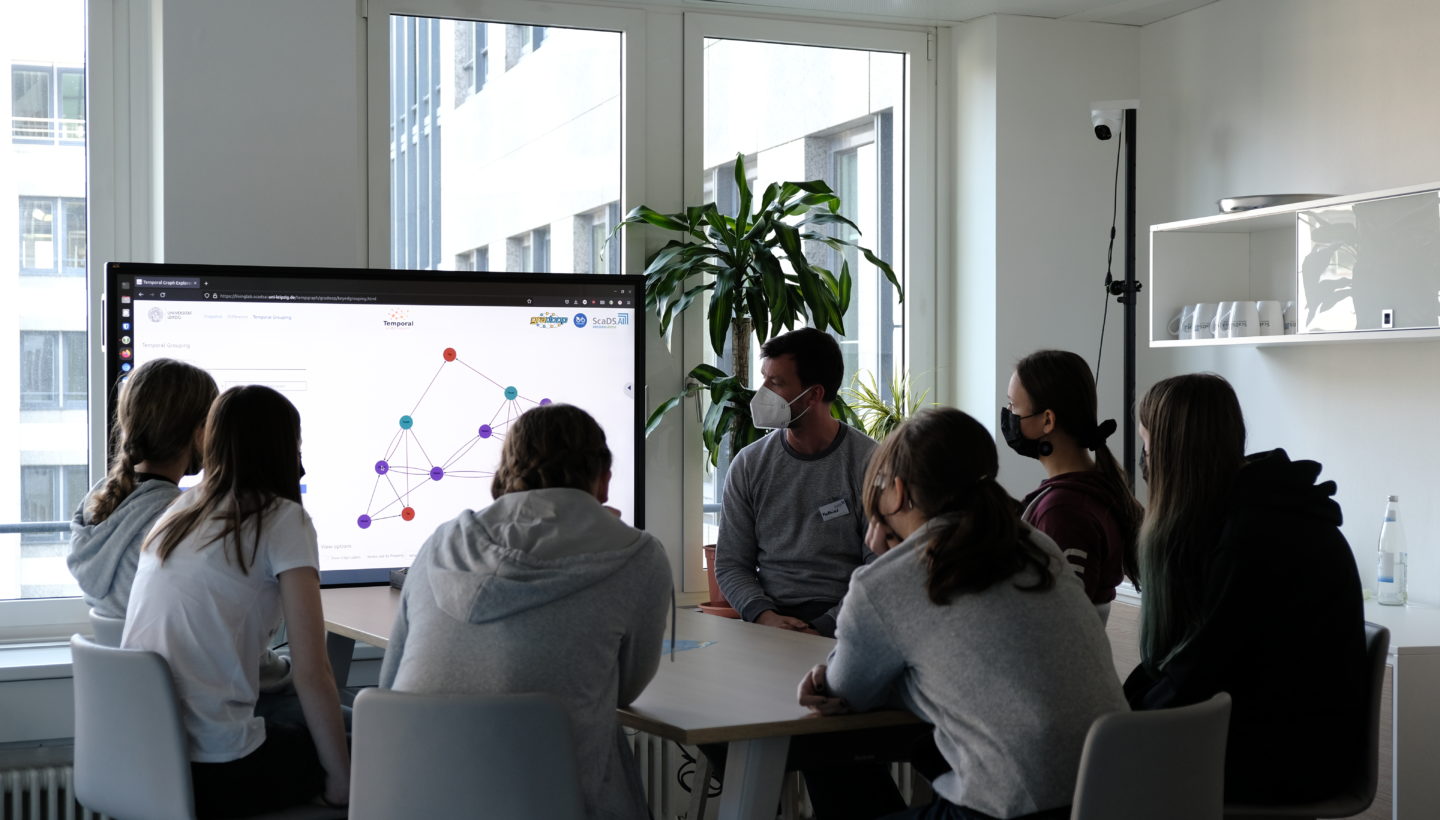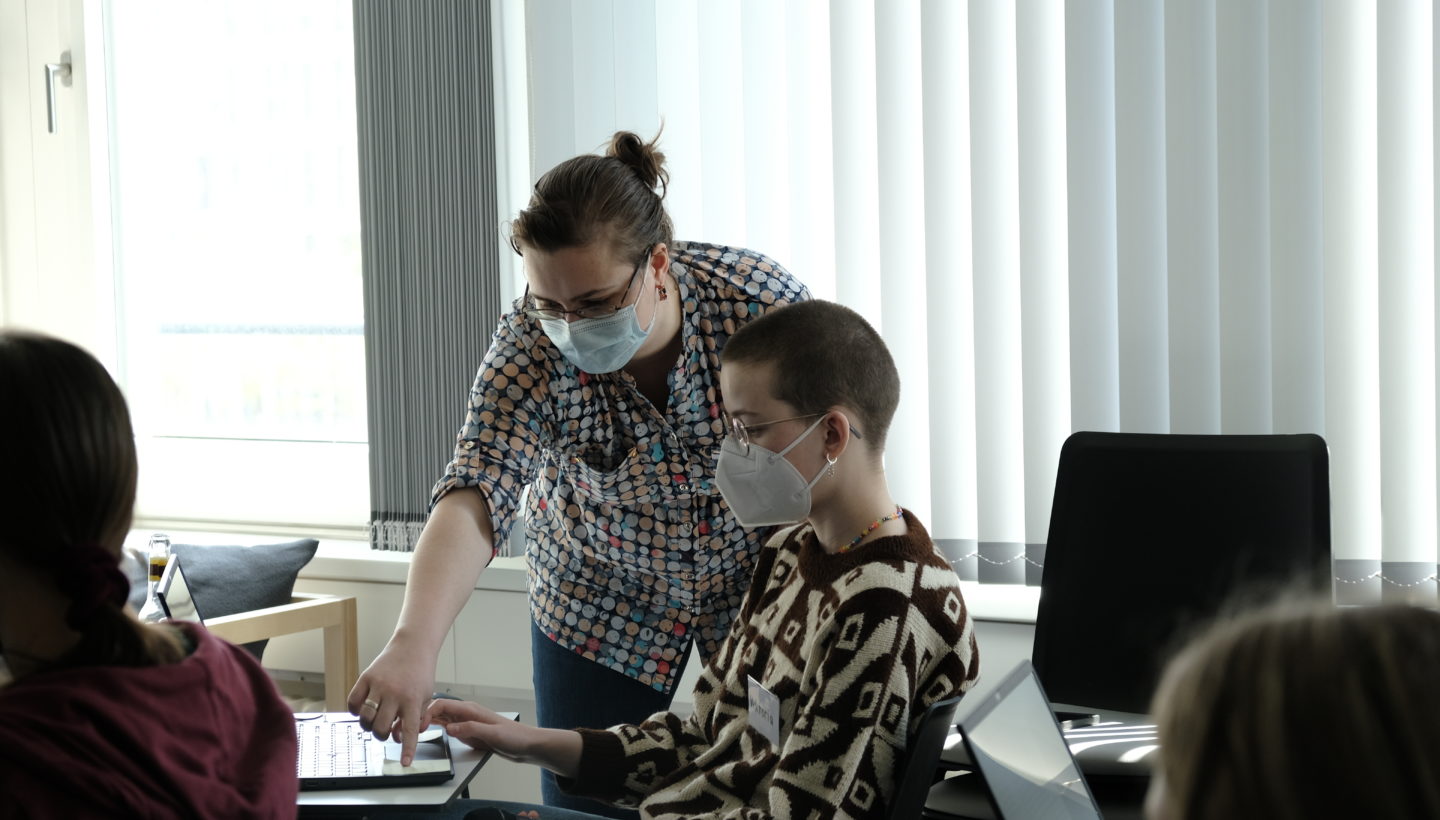On April, the 28th Girls’ Day took place across Germany to support a stereotype-free career choice. ScaDS.AI was also present with an offer for girls and young women.

On Thursday morning we welcomed seven participants of Girls‘ Day 2022 at ScaDS.AI Dresden/Leipzig. After a first round of getting to know each other and a short introduction, the participants at our location in Leipzig learned about the history of AI and Big Data and were able to discuss the differences between Machine Learning and a (Deep) Neural Network. In addition, they critically examined the use of data as well as ethical and moral issues in connection with artificial intelligence. Why does it actually make sense to deal with data privacy? What can happen when, for example, social networks like Facebook collect data from their users and what is actually meant by bias?
Afterwards, researchers from the Center (Anja Neumann, Anika Hannemann, Mariia Tkachenko, Alina Mailach, Dr. Josefine Umlauft, Charlotte Beylier) gave insights into their professional careers as Data Science researchers. It became clear that not only the straightforward career path from studying computer science at a university but also studying mathematics and psychology or even studying art, which was actually planned, coupled with a large share of interest and enthusiasm, can sooner or later lead to AI research.

After a short lunch break, it was time for a guided tour of the Living Lab Leipzig by co-workers Matthias Täschner, Oliver Welz, and Anja Neumann. The participants were able to get an overview of the demonstrators, and gain insight into the current research of the center and inspiration for the programming exercises.
In the following, the participants could learn how to work and print with a 3D printer. For this, Oliver Welz and Ferney Beltran demonstrate the relevant programmes and explained the technical basics of 3D printing. In an exercise from the field of Data Science, it was shown by Marlene Mertens and Aruscha Kramm what information can actually all be extracted from a single large data set on arrests in Los Angeles. How image recognition works and how neural networks classify dog breeds and strawberries was explained afterwards by Anja Neumann. Once again, it became clear that an AI can only do what it has been trained to do. In the third exercise of language groupings, the participants could get an insight into the classification of words by Mariia Tkachenko.
We hope that our events have come to fruition and helped to inspire many young female researchers for the large field of AI research. We certainly had a lot of fun! See you next time for Girls’ Day at ScaDS.AI.
In addition to the participants, a representative of the university radio station Mephisto also took part in our Girls‘ Day and developed an audio report. This article deals with the expectations of the Girls‘ Day and can be listened to on Spotify.
Check out more news about ScaDS.AI Dresden/Leipzig at our Blog.